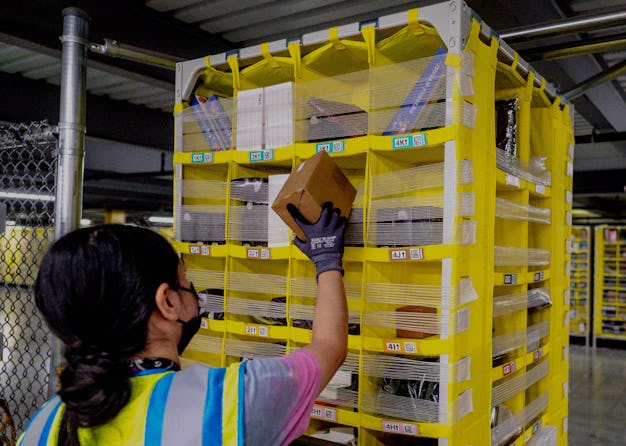Culture
Amazon considers dropping in-house labels amid regulatory heat

243K
How many products Amazon's brands sell collectively.
Amazon’s in-house brands are struggling to keep sales numbers up, and executives are considering scrapping that side of the business altogether. They’ve already told the private-label teams to order fewer products moving forward, with some no longer being stocked at all, sources familiar with the matter told The Wall Street Journal.
Amazon’s private-label business now encompasses approximately 45 brands, and, as of 2020, about 243,000 products. Many of those products — which, by the way, Amazon copied from competitors in some cases — simply aren’t selling well.
That side of Amazon’s business has also faced increasing scrutiny over the last few years from regulators. Amazon has always been a little sneaky with how it presents results in its commerce site’s search function, often ranking its house-made products above those of competitors. This practice has become so prominent it’s even drawn the attention of the U.S. Department of Justice.
Amazon, for its part, denies that its private-label business is going anywhere. “We never seriously considered closing our private label business and we continue to invest in this area, just as our many retail competitors have done for decades and continue to do today,” a spokesperson told WSJ.
Focusing on the good stuff — Amping up Amazon’s private-label business was one of Jeff Bezos’s biggest pet projects toward the end of his tenure as CEO. He reportedly gave staff a goal of 10 percent of all Amazon sales being generated from its own products by this year — and, well, creating all those products at once led to many sitting in warehouses unused. Consumers do actually like buying other brands on Amazon, as it turns out.
Dave Clark, Amazon’s former head of global consumer business, initiated a full review of private-label products, sources told WSJ. That review led Amazon to focus its attention on a much smaller range of products that consumers do actually buy, like iPhone charging cables.
The watchdogs are circling — As one of the largest tech companies in the world, Amazon’s business practices are always the subject of regulatory oversight. Its private-label business has proven to be of more interest to regulators than Amazon might’ve assumed, mostly because Amazon loves to promote its own products over those of competitors. This strategy boosts private-label business, sure, but it’s also the textbook definition of an anticompetitive practice.
A Senate antitrust bill called the American Innovation and Choice Online Act would render such self-preferencing illegal, and it’s garnered significant support. The Department of Justice even took it upon itself to send a letter to a group of bipartisan lawmakers calling for the bill’s speedy passing. It would likely prove detrimental to Amazon’s private-label business.